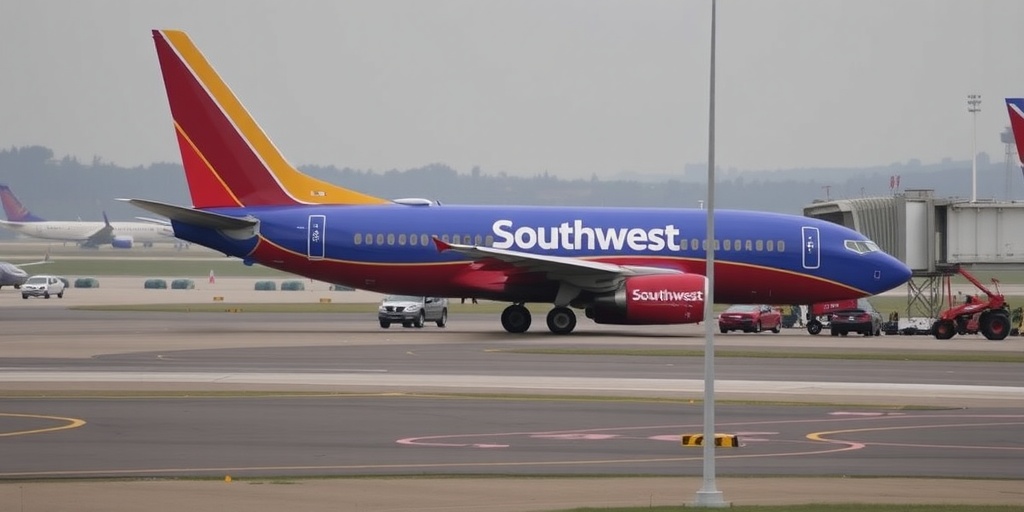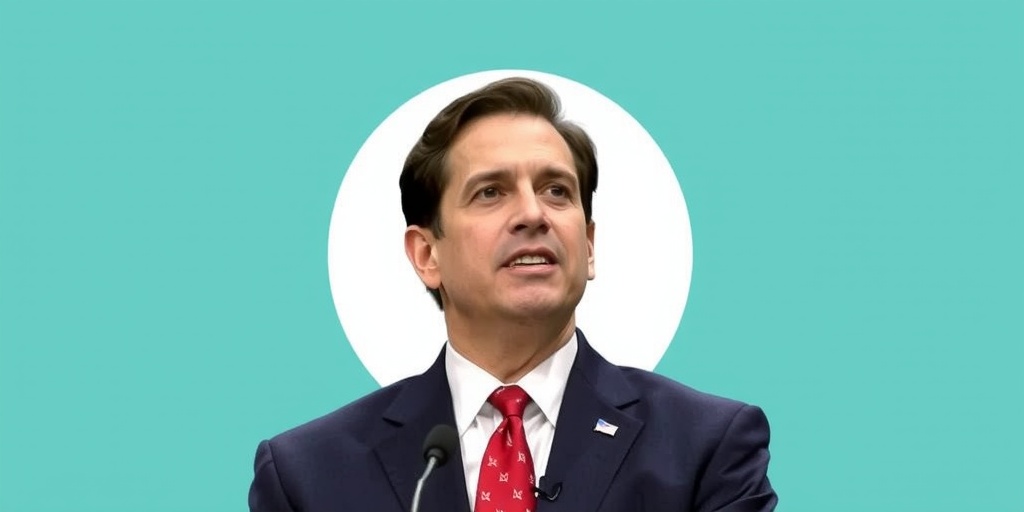Now Reading: U.S. Files Lawsuit Against Southwest Airlines for Ongoing Delays
-
01
U.S. Files Lawsuit Against Southwest Airlines for Ongoing Delays
U.S. Files Lawsuit Against Southwest Airlines for Ongoing Delays

Title: Federal Government Suits Southwest Airlines for Chronic Flight Delays
The U.S. federal government has taken decisive action against Southwest Airlines, announcing a lawsuit aimed at holding the airline accountable for chronic flight delays experienced by passengers in 2022. The lawsuit, filed on Wednesday by the Transportation Department, seeks more than $2.1 million in civil penalties, focusing on flights that consistently faced delays on two specific routes: one between Chicago and Oakland, California, and another between Baltimore and Cleveland.
The lawsuit underscores the Transportation Department’s stance that airlines must provide realistic flight schedules that abide by federal regulations. Transportation Secretary Pete Buttigieg emphasized the government’s commitment to safeguarding passenger rights, indicating that this lawsuit represents a broader effort to enforce consumer protections in the aviation industry. "Airlines have a legal obligation to ensure that their flight schedules provide travelers with realistic departure and arrival times," Buttigieg stated. “Today’s action sends a message to all airlines that the department is prepared to go to court in order to enforce passenger protections.”
The Transportation Department defines a "chronically delayed" flight as one that is late by at least 30 minutes more than half the time it operates, provided the flight occurs at least ten times per month. This legal precedent has been established to prevent airlines from engaging in what the Department considers unfair and deceptive practices when scheduling flights.
In response to the lawsuit, Southwest Airlines expressed disappointment, arguing that the lawsuit pertains to flights that took place over two years ago. The airline noted that it has successfully operated over 20 million flights since the implementation of the Department’s policy against chronic delays, claiming no other violations had been recorded in that timeframe. In a statement, Southwest said, “Any claim that these two flights represent an unrealistic schedule is simply not credible when compared with our performance over the past 15 years.”
Despite this assertion, the airline’s performance statistics raise concerns. According to aviation data provider Cirium, Southwest canceled fewer than 1 percent of its flights last year. However, over 22 percent of its flights were reported to have arrived at least 15 minutes later than their scheduled times, a statistic that places them behind competitors such as Delta Air Lines, United Airlines, Alaska Airlines, and American Airlines in terms of on-time performance.
The lawsuit details specific instances of delays that Southwest Airlines faced in 2022. For instance, a flight from Chicago to Oakland experienced late arrivals 19 out of 25 times in April 2022, with delays averaging over an hour. The pattern of delays continued through August, and on the other route, between Baltimore and Cleveland, average delay times reportedly reached as high as 96 minutes per month during the same timeframe. The Transportation Department highlighted that more than 90 percent of these delays were attributed to factors within Southwest’s control, rather than external factors like adverse weather or air traffic control issues.
The Transportation Department’s lawsuit articulates that these persistent delays not only violate federal regulations but also diminish consumer trust by providing misleading information about flight schedules. “Holding out these chronically delayed flights disregarded consumers’ need to have reliable information about the real arrival time of a flight and harmed thousands of passengers traveling on these Southwest flights by causing disruptions to travel plans or other plans,” the government stated in the lawsuit.
Adding to the ongoing scrutiny of airlines for their performance, the federal government has also imposed penalties on other carriers for similar issues. Recently, the Transportation Department penalized Frontier Airlines for chronically delayed flights, imposing a fine of $650,000—half of which would be paid to the Treasury, while the other half could be forgiven if Frontier improves its timeliness over the next three years. Furthermore, the Department ordered JetBlue Airways to pay a $2 million fine for failing to address delays on a number of flights over a period exceeding a year, with stipulations designed to compensate affected passengers.
As the Transportation Department intensifies its scrutiny of airline practices, this lawsuit against Southwest Airlines highlights a critical moment for traveler rights and airline accountability. The outcome of this legal action may serve as a precedent for future enforcement of rules designed to protect consumers and promote fair competition in the aviation industry. The ongoing dialogue regarding flight schedules, punctuality, and consumer rights will likely remain a focal point as air travel continues to evolve in the years to come.
Stay Informed With the Latest & Most Important News
Previous Post
Next Post
-
 01New technology breakthrough has everyone talking right now
01New technology breakthrough has everyone talking right now -
 02Unbelievable life hack everyone needs to try today
02Unbelievable life hack everyone needs to try today -
 03Fascinating discovery found buried deep beneath the ocean
03Fascinating discovery found buried deep beneath the ocean -
 04Man invents genius device that solves everyday problems
04Man invents genius device that solves everyday problems -
 05Shocking discovery that changes what we know forever
05Shocking discovery that changes what we know forever -
 06Internet goes wild over celebrity’s unexpected fashion choice
06Internet goes wild over celebrity’s unexpected fashion choice -
 07Rare animal sighting stuns scientists and wildlife lovers
07Rare animal sighting stuns scientists and wildlife lovers





















